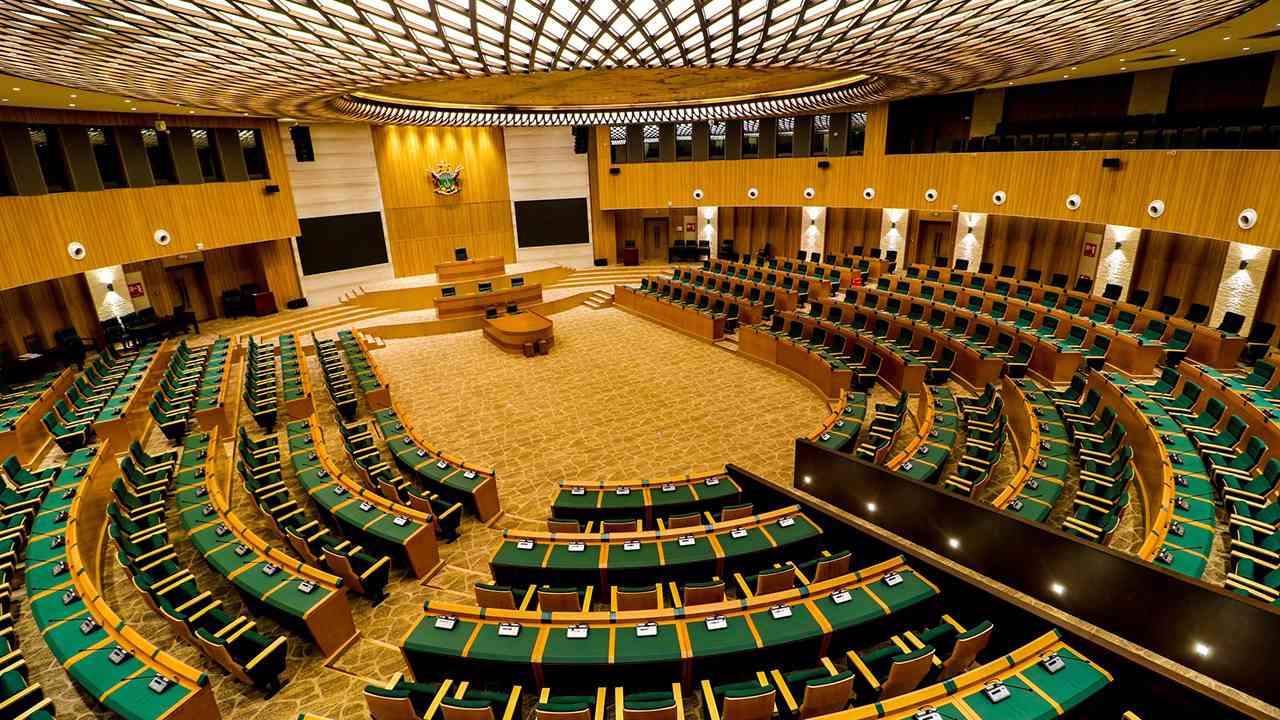
INFORMAL traders, who largely evade taxes and levies, are putting formal retail and wholesale businesses in Zimbabwe, weighed down by a heavy tax burden, at a competitive disadvantage, Parliament has heard.
According to a report tabled in the National Assembly last week by the Parliamentary Portfolio Committee on Industry and Commerce led by Zaka legislator Clemence Chiduwa (Zanu PF) government’s taxation framework imposes multiple charges on formal businesses, accounting for nearly 5% of their total expenses.
Among these, the Intermediated Money Transfer Tax (IMTT) — a 2% levy on electronic transactions, is the highest in the region.
Its steep rate discourages digital payments, pushing economic activity back into a largely unregulated, cash-based system, the report read.
“The committee established that registered businesses are forced to comply with tax laws while the informal sector evades tax, which certainly leaves the former at a price-competitive disadvantage. In addition, the taxation regime is heavy on formal businesses, creating incentives for informalisation,” the committee said.
“The current framework, characterised by numerous taxes and charges, accounts for approximately 5% of the expenditure for most businesses.
“The Intermediated Money Transfer Tax (IMTT), set at 2%, is notably the highest in the region, deterring the adoption of electronic transactions and pushing the economy towards a cash-based system.”
According to the report, the shift undermines financial inclusion and the efficiency of monetary policy measures.
- IDBZ in tax miscalculation gaffe
- Groundswell of caution over ‘punitive’ IMTT...Captains of industry want 2% tax scrapped
- Piggy’s Trading & Investing Tips: Investing as a poverty alleviation tool
- Currency risk unsettles insurance sector
Keep Reading
“Additionally, IMTT is not deductible for income tax purposes, adding an extra cost burden for many operators. The informal sector has an advantage over the formal retail and wholesale trader because it is mainly trading in USD cash and only accepting Zimbabwe Gold (ZiG) at a premium rate. In contrast, the formal sector is forced to accept the ZiG at the stipulated exchange rate,” it said.
The committee also revealed that before the government reviewed the restrictions on the exchange rate through Statutory Instrument (SI) 34 of 2025, Exchange Control, in April, its impact on the wholesale and retail sectors has not been established.
“Before the introduction of the statutory instrument, the formal businesses were struggling to re-stock because some of the suppliers wanted to be paid in USD, yet the balance sheets of the formal businesses were largely in ZiG,” the report said.
The House heard that the rebasing from the Zimbabwe dollar (ZWL) to ZiG in March 2024, followed by substantial currency devaluation in September 2024, caught many operators off-guard.
“This volatility has led to difficulties in competitive pricing, as unregulated players have become more attractive to suppliers seeking increased USD inflows.
“Consequently, many suppliers have shifted towards selling directly to the informal sector, often shunning local currency transactions due to challenges in obtaining hard currency through the auction system,” the committee said.
The report said the situation resulted in price inflation driven by exchange rate fluctuations, leading to higher consumer costs.
“The formal retail and wholesale sectors are encumbered by an excessive number of licences and permits required to operate legally.
“Running a single supermarket necessitates obtaining over 30 different licences and permits, each associated with significant costs and administrative procedures.
“This complex regulatory framework not only increases operational expenses but also diverts valuable time and resources away from core business activities Consequently, many small and medium-sized enterprises (SMEs) are deterred from formalising their operations, opting instead to remain in the informal sector to avoid these burdens.”
The committee said the situation created an uneven playing field, as informal operators could offer lower prices by circumventing compliance costs, thereby attracting a larger customer base.
“Zimbabwe’s licensing and regulatory environment remains overly complex, with businesses required to comply with multiple, often overlapping, regulations.
“There is a proliferation of statutory instruments (SIs) with an SI enacted on average every 1,43 days in 2024 and this creates uncertainty and increases compliance costs.
“The high cost of regulatory compliance, redundant licensing requirements and fragmented enforcement mechanisms are pushing many businesses into informality.”
The House also heard that the committee established that power is unsustainably costly and many supermarkets and retailers are running primarily on generator power due to electricity shortage and even when power is available, the tariffs are extremely high.
“Many businesses now rely on solar power and diesel generators, which are expensive alternatives. Furthermore, businesses seeking to set up solar power plants face licensing and regulatory barriers, with the initial set-up cost estimated at around US$130 000. The high cost of energy remains a major impediment to industrial competitiveness,” the report read.










